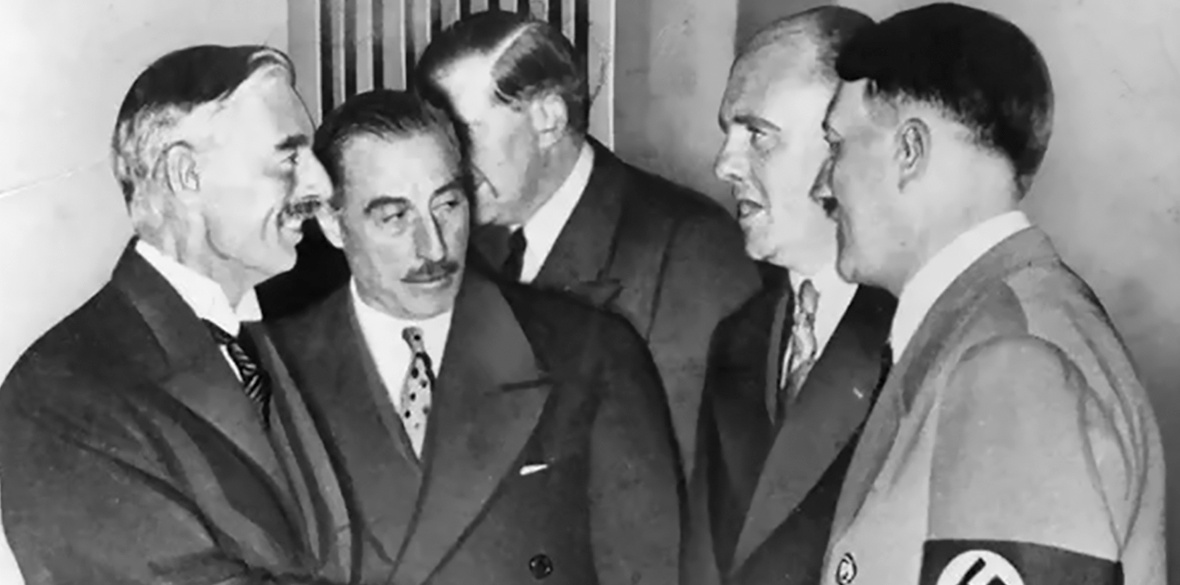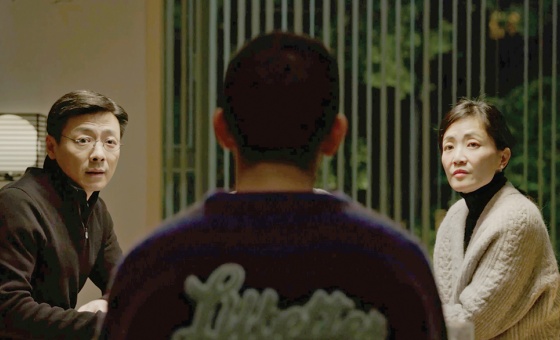This is the last article you can read this month
You can read more article this month
You can read more articles this month
Sorry your limit is up for this month
Reset on:
Please help support the Morning Star by subscribing here
THIS revelatory historical story is counter-intuitive. Its subject is a group of, in the main, very privileged Tory politicians, who become militant anti-Nazis during the 1920s and ‘30s. It is a previously untold story and is also a perfect demonstration of Marx’s aphorism that “being determines consciousness.”
The author, Chris Bryant, explains how this unusual constellation of leading politicians evolved to become adamant anti-Nazis, while most of their colleagues in the Establishment remained pro-Nazi or closet sympathisers. Why did this group become anti-Nazi? The answer: because they were gay.
Homosexuality was still a criminal offence in Britain — until 1967. While the often aristocratic and privileged status of these men gave them a certain protection, as long as they chose their companions carefully, they still feared exposure and ruin on a daily basis.
They were often referred to in the press in derogatory code as “flamboyant,” “colourful,” “artistic” or simply as “bachelor MPs” but always with the implication of being gay.
The group included, among others, Bob Boothby who would become private secretary to Winston Churchill, Victor Cazalet — ex-Eton and a captain in the Queen’s Own West Kent Yeomanry; Ronnie Cartland — brother of the writer Barbara Cartland; author and diplomat Harold Nicolson who was a national Labour MP for Leicester West — later married to writer Vita Sackville-West — and Philip Sassoon, private secretary to field marshall Douglas Haig.
On the Continent, the situation for gays was different. The Weimar Republic from 1919 onwards introduced a more liberal and permissive attitude to life. In Berlin, particularly, hedonism reigned supreme and gay bars and clubs proliferated. It was here that many of these Tory toffs loved spending their leisure hours, where they could be openly gay with little fear of being pursued by the law.
With Adolf Hitler’s rise to power, the new regime was determined to “clean up” the country and eradicate “Bohemianism, artistic licence and homosexuality” — all associated, in their mind, with being left wing or Bolshevik.
And it was primarily the clamp-down on sexual freedom that alerted the British visitors to the dangers of Nazism and brought about a profound change in their thinking. Once they saw their Jewish and gay friends being arrested and sent to concentration camps they knew what to expect should Hitler’s expansionist aims become reality.
Bryant also underlines how widespread and rampant anti-semitism was in Britain at the time, particularly in ruling circles. It is frightening to realise how close the country came to becoming not only an ally of Hitler but a full-blown fascist state.
Hitler was much admired in Britain’s ruling circles not only because he was determined to smash Bolshevism but also because of his determination to eradicate the Jews.
These MPs tried desperately to alert their political colleagues back home and called urgently for Britain to rearm, but Bryant incorrectly says that “they were among the very first to warn Britain about Hitler.” Has he not heard of the continual warnings from communists and Jewish activists well before this?
For their stance this group were attacked viciously as “warmongers.” Chamberlain hated them, dubbing them: “The Glamour Boys” and employed his attack dog George Ball to discredit them, tap their phones and threaten them with exposure and deselection.
In 1916 when MI5 set up PMS2 (Parliamentary Military Secretary Department, No 2 Section) to spy on British socialists, Ball became one of its agents. In 1927 Chamberlain appointed him deputy of publicity at Conservative central office, and later as director of the Conservative research department.
Over the next 15 years Ball developed the strategy of using dirty tricks and black propaganda, including involvement in the notorious “Zinoviev letter,” costing the Labour Party the 1924 election. One historian claims that Ball was Britain’s first spin doctor.
The popular press at the time, following Ball’s lead, spared no effort to blacken the names of these gay MPs with insinuation and slander.
Hitler’s attacks on homosexuals was described by The Times as “only clearing up.” While the Daily Mail made no bones about its support for fascism, publishing a headline in support of Oswald Mosley: “Hurrah for the Blackshirts.”
The 1936 Olympics in Berlin was attended by a dazzling array of leading Tories, invited by Hitler, and they didn’t stint with their praise of that Nazi extravaganza.
Bryant’s fascination with this story is, though, based more on the fact of their being gay, while largely ignoring their otherwise reactionary politics. When all is said and done their opposition to fascism was simply a reaction to how the Nazis treated homosexuals. It didn’t stop many of them applauding Franco’s coup in Spain against the Republican government in 1936 or reverting to traditional Conservative politics after the war.
The Glamour Boys — the Secret Story of the Rebels who Fought for Britain to Defeat Hitler is by Chris Bryant and published by Bloomsbury.










